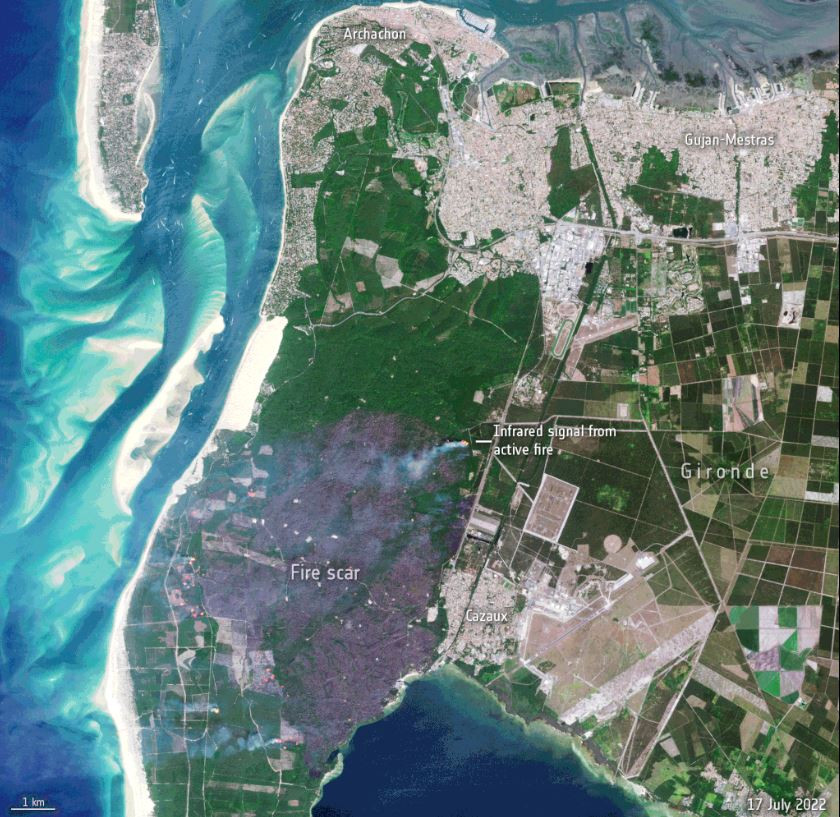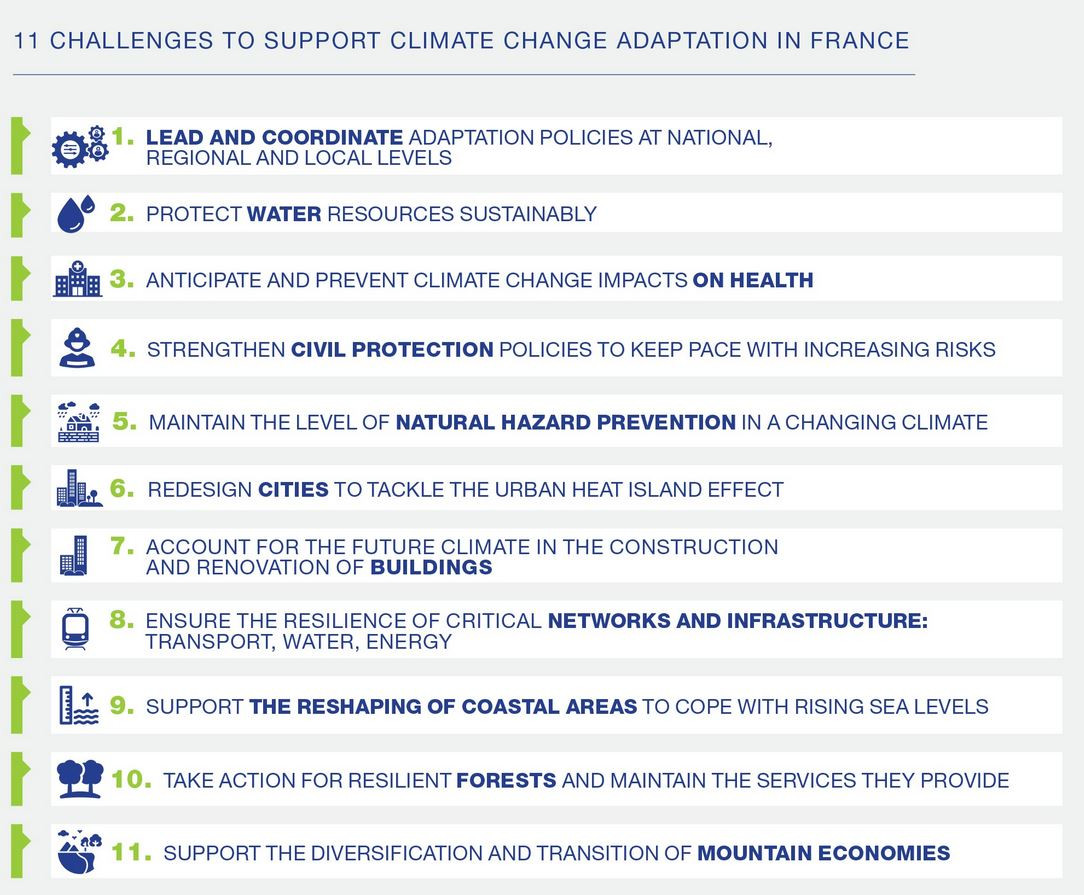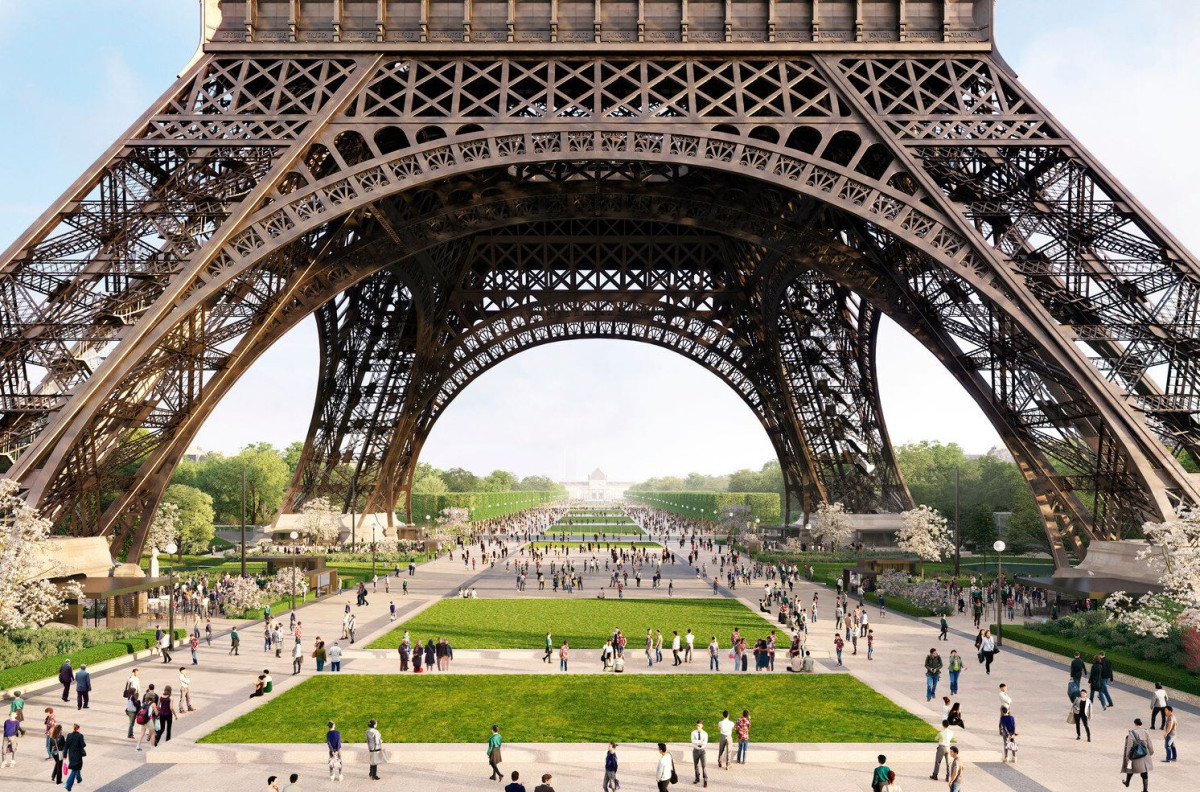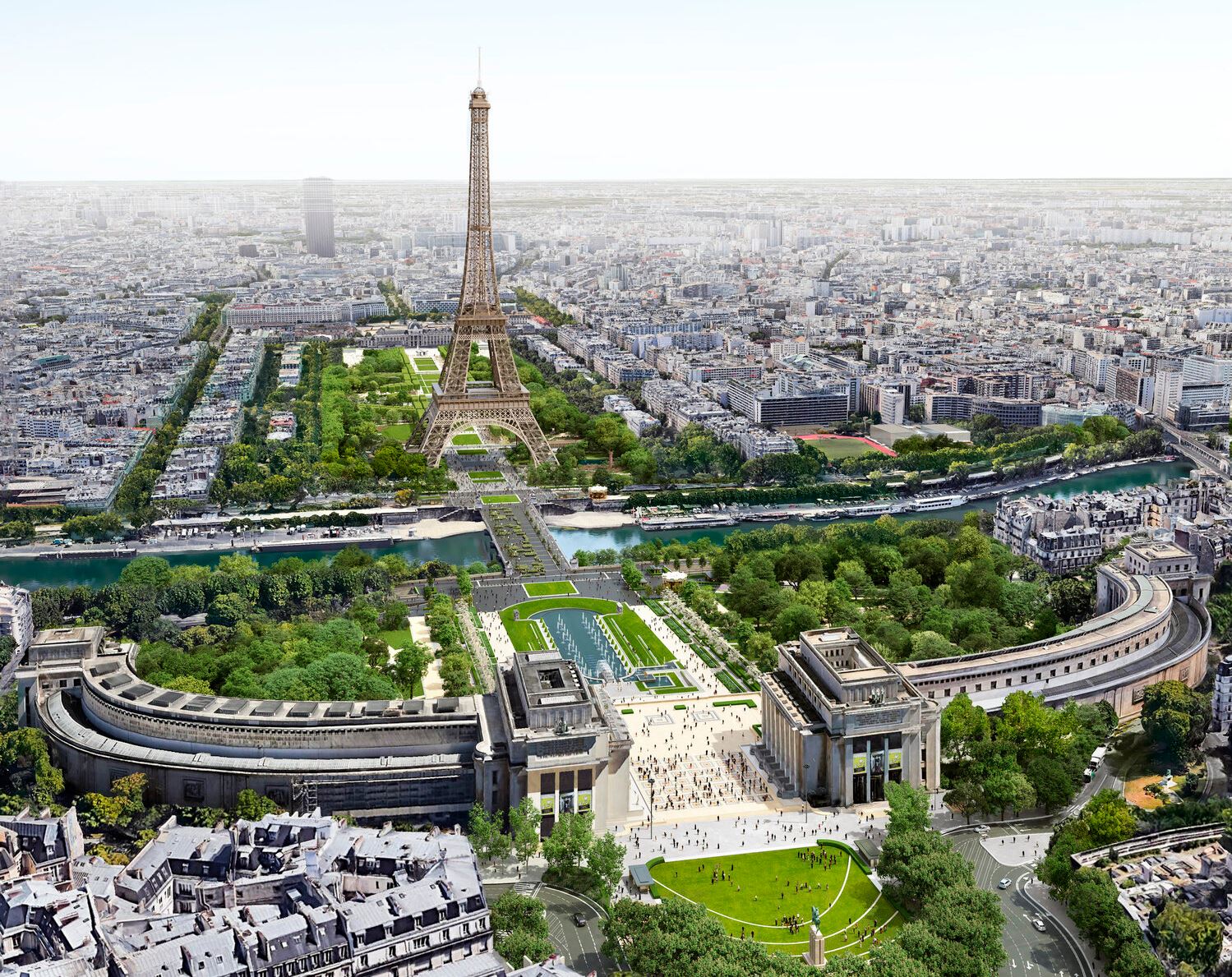France braces for 4°C warming in “turning point” strategy
***Please note: This factsheet is part of a stocktake of climate adaptation efforts in Europe, which you can find here. Also read the main article Extreme weather forces unprepared Europe to focus on climate adaptation, the Q&A - Why Europe needs to adapt to the impacts of climate change, as well as the factsheet Europe steps up climate change adaptation in wake of floods and heatwaves.***
2023 will be a crucial year in France’s efforts to prepare for the ever more palpable effects of rising temperatures. Last year’s devastating wildfires and droughts have revealed that current adaptation plans are hopelessly insufficient. The ongoing water shortage, which follows a record winter dry spell and could endanger energy production, adds further pressure on the government to come up with an ambitious strategy.
France’s National Adaptation Plan for Climate Change dates from 2018 and expires this year. Experts are eagerly awaiting a comprehensive follow-up, which the government is due to present by the middle of the year, as part of a new energy and climate law.
“We are waiting for this law,” says Vivian Dépoues, adaptation project manager at the Institute for Climate Economics (I4CE) in Paris. He told Clean Energy Wire the "proposals on the table” would lead to “more concrete, more formal” measures than in the past, and help – among other things - better adapt coastal areas to the consequences of climate change, and improve civil security response capacities to forest fires.
The current national adaptation plan “has a lot of red tape,” is “not very binding” and contains “relatively few concrete actions,” says Dépoues. As a result, climate adaptation in France is “reactive,” not based on historical scientific knowledge, and suffers from “many blind spots,” he adds. “We don't anticipate, and we lack a strategic vision.”

Expectations are particularly high for France to address the issue of adaptation head on in its upcoming strategy after environment minister Christophe Béchu called for modelling “a +4°C warming scenario in France," adding this step was "essential to avoid maladaptation." Therefore, the country’s new adaptation strategy will include two scenarios: the first, described by the minister as "optimistic," will be based on the path of the Paris Agreement (+1.5°C, or +2°C globally). The second, described as "pessimistic," is "undoubtedly more realistic in view of the current dynamics." This scenario assumes a global temperature increase of at least 2.5°C, which would correspond to a 4°C increase for France. "This scenario is essential for raising awareness," the minister explained.
Experts believe Bechu’s words bode well for a serious approach. "This announcement marks an important turning point," said Magali Reghezza, a geographer and member of country’s High Council on Climate, which advises the government. "We need to take the time to appreciate what this +4ºC means for our regions, our daily lives and our jobs. More than ever, adjustments at the margins are no longer enough."

Last summer, the I4CE published the first assessment of public funding required for climate adaptation in France. “Without this knowledge, it is difficult to put in place a coordinated and effective policy,” says Dépoues, one of the authors of the report.
The I4CE lists 18 must-do measures, representing an additional budget of at least 2.3 billion euros a year, starting immediately to improve existing adaptation efforts and launch new projects to “make up for lost time.” This sum is “not huge” and “quite achievable,” says Dépoues. “[Today] it is very difficult to give an overview of the budget allocated to adaptation policy because there is no budget line specifically dedicated to adaptation.”
Among the 18 proposals put forward by I4CE is an annual budget to help prevent cities from turning into “heat islands,” and construct buildings adapted to longer heat waves. The think tank also proposes steps to reduce the exposure of transport, water and energy networks and infrastructure to extreme weather events; make forests more resilient; and support the diversification of revenue sources for mountain communities dependent on skiing in response to the reduction in snow cover.
Achieving all this will require the government to “engage in structural transformations” and grapple with some difficult questions – including how to manage water shortages in the agricultural sector; how to manage communities living on the coast; and who should pay for adaptation measures, says Dépoues.

France’s capital Paris is already starting to rethink its urban design thanks to the adaptation component in the city’s climate plan. During heatwaves, the city becomes a furnace, making life increasingly unbearable for many residents. In the summer of 2021, a fact-finding mission about “mega-heatwaves” was launched under the leadership of city councilor Alexandre Florentin, who is also director of the Carbone 4 Academy and co-author of a fictional story on Twitter (@Paris50degres) that takes readers on a journey to a 50°C Paris in 2026.
Paris has already passed the symbolic milestone of 2°C of warming compared to pre-industrial levels, according to the City Council’s report “Paris in the face of climate change,” which was published last year. The report forecast that there will be almost 20 hot days (above 30°C) a year by 2030, and more than 34 by 2085 – up from 14 in 2010. The number of tropical nights – with temperatures staying above 20°C – could increase threefold by 2030.
 on Paris and climate change.](/sites/default/files/styles/paragraph_text_image/public/paragraphs/images/adaptation-france-paris.jpg?itok=JKesQquF)
Paris’ adaptation challenges are all the more pressing as the city prepares to host the Olympic Games in 2024, with sports events in over 40°C now a real possibility. But the city is anticipating these risks, and plans to turn them to its advantage – it wants to use the Games as a lever for becoming a more sustainable city.
The city’s "Olympic Transformations" programme, dating from 2019, already identified 20 measures to ensure that the Games leave a positive legacy. Its recommendations were drawn up following a broad consultation process involving more than 10,000 Parisians.
The proposed measures include transforming the Eiffel Tower area - which will host the celebrations and the beach volleyball, judo, wrestling, triathlon and open water swimming events - into an inner city “green lung.” Preparations are already in full swing in the city to have everything completed by 31 December 2023.
"It's all about politics," summed up Anne Hidalgo, Socialist mayor of Paris, in her New Year's address. It is a question of giving the right political impetus to "plan and rethink each new urban project by adapting them to climate change," she explained. The aim is to ensure that Paris can host world events and at the same time remain "the most beautiful city in the world."

